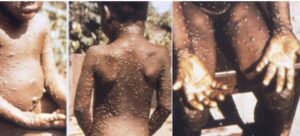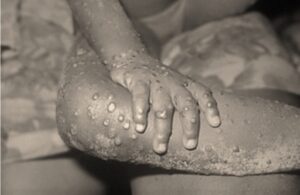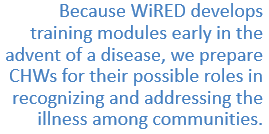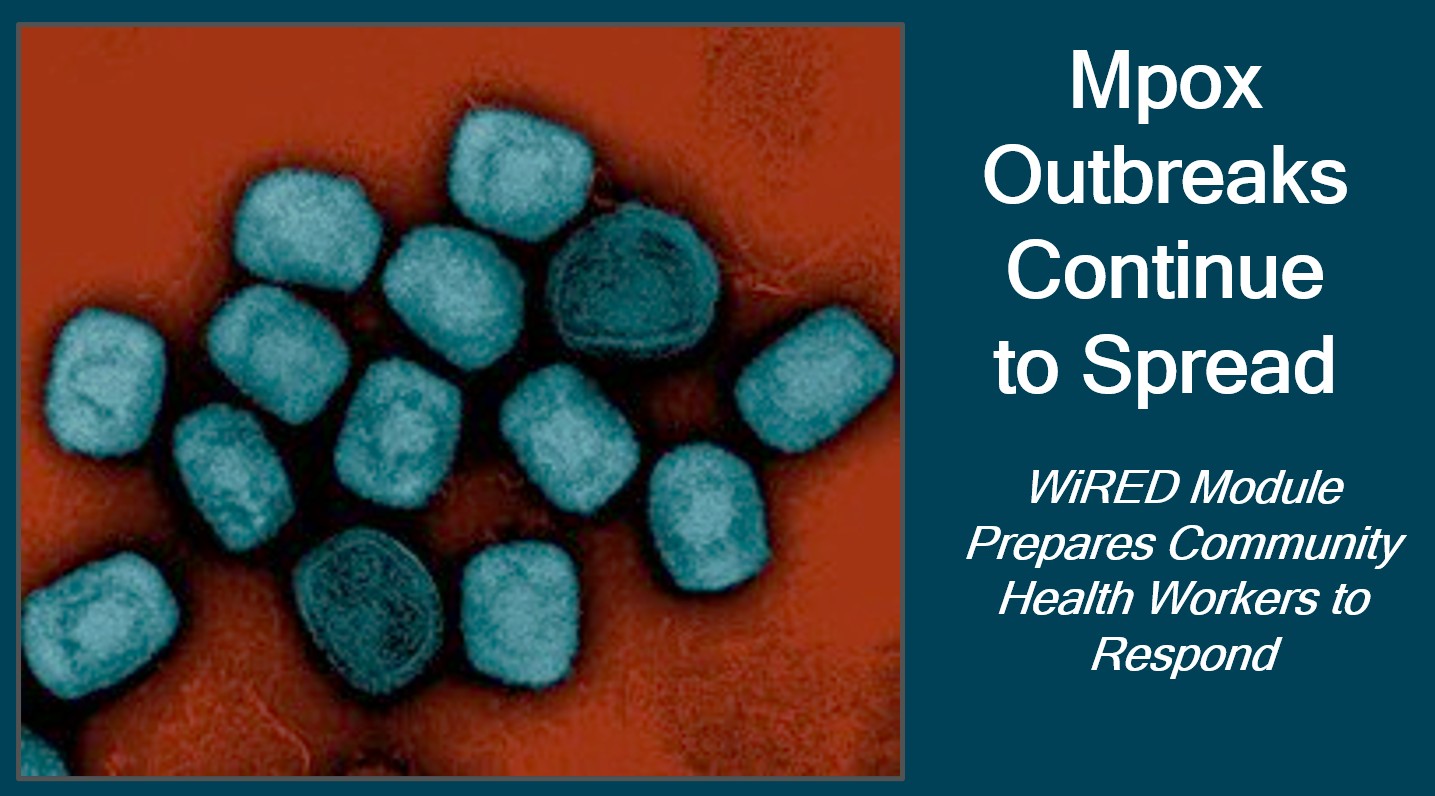By Allison Kozicharow; Edited by Elizabeth Fine
Less than a year ago, in August 2024, mpox spread rapidly from the Democratic Republic of the Congo (DRC) to four neighboring countries, and as a result the World Health Organization (WHO) declared a global health emergency.
 After WHO’s declaration, WiRED International acted quickly to create an Mpox module for study and use by anyone, but especially by community health workers (CHWs). It is WiRED’s practice to produce a new module for emerging diseases — as we did for Ebola, Zika, COVID-19 and others.
After WHO’s declaration, WiRED International acted quickly to create an Mpox module for study and use by anyone, but especially by community health workers (CHWs). It is WiRED’s practice to produce a new module for emerging diseases — as we did for Ebola, Zika, COVID-19 and others.
Now mpox is back in the news. This May WHO reported that mpox was confirmed in 132 countries globally and that 138,029 cases were observed. The U.S. Centers for Disease Control and Prevention is also keeping a close watch on mpox, despite only four mpox cases recorded in the United States to date.
 Last year in Kisumu, Kenya, WiRED CHWs studied the mpox module immediately after its release and shared the knowledge among their communities. Local press reports have raised concern among community members, and, in response, the CHWs have refreshed their knowledge of mpox by reviewing WiRED’s mpox module and other modules related to infectious diseases. With this information, they inform people in their communities about the heightened dangers of mpox. Because WiRED develops training modules early in the advent of a disease, we prepare CHWs for their possible roles in recognizing and addressing the illness among communities.
Last year in Kisumu, Kenya, WiRED CHWs studied the mpox module immediately after its release and shared the knowledge among their communities. Local press reports have raised concern among community members, and, in response, the CHWs have refreshed their knowledge of mpox by reviewing WiRED’s mpox module and other modules related to infectious diseases. With this information, they inform people in their communities about the heightened dangers of mpox. Because WiRED develops training modules early in the advent of a disease, we prepare CHWs for their possible roles in recognizing and addressing the illness among communities.

Disease containment of mpox remains a challenge. Why?
- Once transmitted only from infected animals, the disease now tends to spread easily among humans — and new viral strains continually emerge.
- Ongoing conflict, lack of health services and the shortage of doctors and nurses in low-resource countries limit support.
- Cuts to humanitarian aid have severely affected health services’ abilities to provide vaccines and medication in underserved regions — most notably by the Trump Administration’s halt to global health funding.
WiRED will continue to monitor the advance of mpox, especially from our CHWs on the ground in Kenya. In the meantime, you can learn more about mpox by going to WiRED’s free mpox module.
What is mpox?
Mpox is a viral zoonotic infectious disease caused by a virus called Orthopoxvirus. Mpox is transmitted to humans from coming in contact with sores, scabs and oral fluids from infected people (often through sexual relations) and from infected animals, most commonly rodents.
 Characterized by a severe rash, monkeypox can be fatal. Symptoms can be painful and leave permanent scarring from the pox. The disease can cause serious illness or death especially in children under age eight, people with weakened immune systems or a history of eczema and women who are pregnant or breastfeeding.
Characterized by a severe rash, monkeypox can be fatal. Symptoms can be painful and leave permanent scarring from the pox. The disease can cause serious illness or death especially in children under age eight, people with weakened immune systems or a history of eczema and women who are pregnant or breastfeeding.
There are currently two vaccines in use for mpox, and WHO is working with nations, health agencies and vaccine manufacturers to provide immunizations for distribution in low-resource countries. Mpox vaccine delivery to Africa has been severely affected by the U.S. Administration’s cuts to global health.



